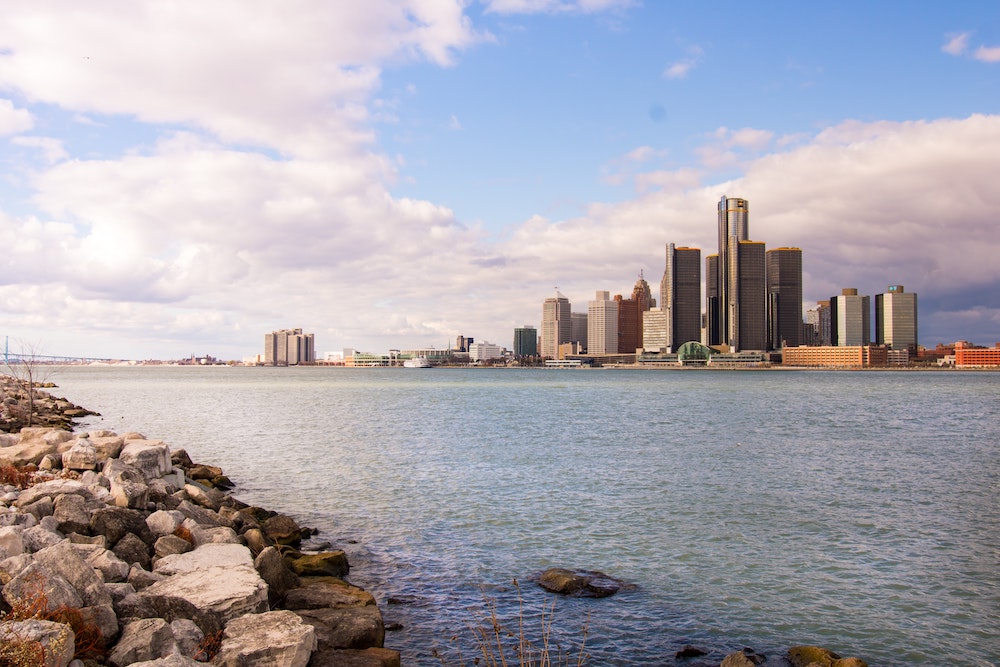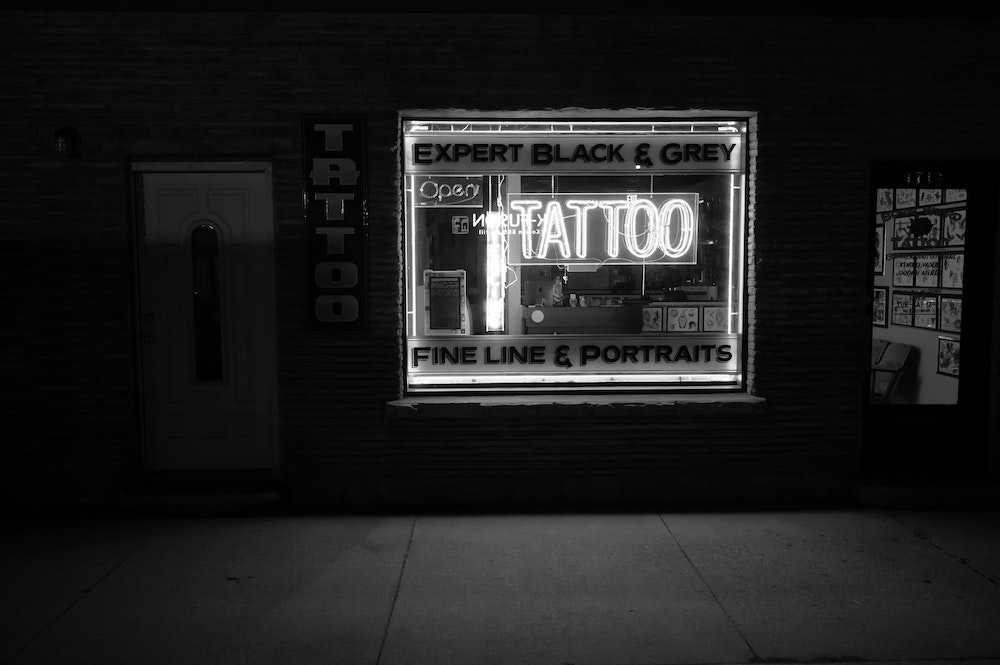A comprehensive guide to the Detroit city history, culture, economy, and more. Explore the Motor City’s rich heritage and vibrant present.
Detroit is the largest city in the state of Michigan, United States. It is situated on the Detroit River, which connects Lake Huron and Lake Erie, and is considered a major center for transportation and industry in the Great Lakes region. Known as the “Motor City,” Detroit has been an important manufacturing center for the automotive industry for decades, and it has a rich cultural history, having given rise to several notable musicians and artists. In this article, we will explore the history, culture, and economy of Detroit, as well as its current state of affairs.
Table of Contents
- History
- Culture
- Economy
- Education
- Sports
- Transportation
- Tourism
- Infrastructure
- Safety and Crime
- References
Detroit History
The history of Detroit dates back to 1701, when French explorer Antoine de la Mothe Cadillac established a fort and trading post at the site. The settlement grew rapidly in the 18th and 19th centuries, becoming an important center for trade and industry. During the 20th century, Detroit became a major hub of the automotive industry, with companies such as Ford, General Motors, and Chrysler all establishing headquarters and manufacturing plants in the city.
In addition to its industrial history, Detroit has played a significant role in the civil rights movement. In the 1940s and 1950s, Detroit was a destination for many African Americans who migrated from the South seeking employment in the automotive industry. However, segregation and discrimination were still prevalent in the city, leading to the emergence of civil rights leaders such as Rosa Parks and Malcolm X. The 1967 Detroit riots, sparked by police brutality and racial tensions, were a significant moment in the struggle for civil rights and racial justice, and the city has continued to grapple with issues of racial inequality in the decades since.
Culture
Detroit has a rich cultural history, having given rise to several notable musicians and artists. The city is particularly known for its contributions to the development of techno music, with artists such as Juan Atkins, Derrick May, and Kevin Saunderson hailing from the area. In addition, Detroit has a vibrant visual arts scene, with numerous galleries and museums showcasing the work of local and international artists.
The Detroit Institute of Arts, located in the city’s cultural center, is one of the largest art museums in the United States, with a collection that includes works by Vincent van Gogh, Diego Rivera, and Frida Kahlo. The Museum of Contemporary Art Detroit (MOCAD) is another important cultural institution, featuring a range of contemporary art exhibitions and events. The city is also home to several theaters, including the historic Fox Theatre and the Detroit Opera House, which regularly host performances by local and international artists. Beyond the arts, Detroit is known for its sports culture, with professional teams including the Detroit Lions (football), Detroit Pistons (basketball), Detroit Tigers (baseball), and Detroit Red Wings (hockey). The city has a passionate fan base and has hosted several major sporting events, including the Super Bowl and the World Series.
Economy
Detroit has long been a major center for the automotive industry, with companies such as Ford, General Motors, and Chrysler all establishing headquarters and manufacturing plants in the city. However, the city’s economy has suffered in recent years, with the decline of the automotive industry and the effects of the Great Recession taking a toll on the city’s finances. In recent years, however, there have been efforts to diversify the city’s economy, with new industries such as technology and healthcare beginning to take hold in the area.
In particular, the city has seen a growth in startups and entrepreneurship, with organizations such as TechTown Detroit and the Detroit Creative Corridor Center working to support and promote innovation and creativity in the city. In addition, the healthcare industry has been a significant source of growth, with major hospitals such as the Henry Ford Health System and the Detroit Medical Center providing employment opportunities and contributing to the city’s overall economic health. The city has also been investing in infrastructure improvements, including the construction of a new light rail system, which is helping to improve transportation and connectivity within the city. While there are still significant economic challenges facing Detroit, there is hope that these efforts to diversify and revitalize the economy will help to create a more sustainable future for the city and its residents.
Education
Detroit is home to a number of institutions of higher education, including Wayne State University, the University of Detroit Mercy, and the College for Creative Studies. These institutions offer a wide range of degree programs, from engineering and business to the arts and humanities.
In addition to traditional universities, Detroit is also home to several innovative educational programs and initiatives aimed at improving educational opportunities for students in the city. One example is the Detroit Promise program, which provides free tuition to all eligible high school graduates who enroll in a community college or four-year university within the city. The program is aimed at increasing college enrollment and completion rates, particularly among low-income and first-generation students. Another initiative is the Detroit Public Schools Community District’s Career Academies, which offer students hands-on, career-focused training in fields such as health care, engineering, and information technology. These programs are designed to help students develop the skills and knowledge needed to succeed in the workforce and contribute to the city’s economic growth. Despite these efforts, however, Detroit still faces significant challenges in the area of education, including high dropout rates and achievement gaps between students of different racial and socioeconomic backgrounds.
Detroit Sports
Detroit is home to several professional sports teams, including the Detroit Lions (football), Detroit Tigers (baseball), Detroit Red Wings (hockey), and Detroit Pistons (basketball). These teams have a large and devoted fan base in the city, and the sports culture in Detroit is a significant part of the city’s identity.
One of the most iconic sports venues in Detroit is the Ford Field, home of the Detroit Lions. The stadium opened in 2002 and has a seating capacity of over 65,000, making it one of the largest stadiums in the NFL. The stadium has hosted several major sporting events, including the Super Bowl in 2006, and is also used for concerts and other events. Another iconic sports venue in Detroit is the Little Caesars Arena, which opened in 2017 and is home to both the Detroit Pistons and Detroit Red Wings. The arena has a seating capacity of over 20,000 and features state-of-the-art facilities for both sports and entertainment events. In addition to professional sports, Detroit also has a strong tradition of amateur and youth sports, with programs and leagues aimed at promoting physical fitness, teamwork, and sportsmanship among young people in the city.
Transportation
Detroit is a major transportation hub, with several major highways, including I-75, I-94, and I-96, passing through the city. The city also has an international airport, the Detroit Metropolitan Wayne County Airport, which serves millions of passengers each year.
In addition to highways and airports, Detroit also has a comprehensive public transportation system, operated by the Detroit Department of Transportation (DDOT) and the Suburban Mobility Authority for Regional Transportation (SMART). DDOT provides bus service throughout the city and surrounding areas, with over 40 routes and more than 1000 buses in its fleet. SMART provides regional bus service to communities throughout Southeast Michigan, including Detroit and its suburbs. In recent years, there have been efforts to improve and expand public transportation options in the city, including the introduction of new bus rapid transit lines and plans for a light rail system. Additionally, Detroit is known for its innovative bike share program, known as MoGo, which provides affordable, accessible transportation options for residents and visitors alike.
-

The history of Detroit dates back to 1701, when French explorer Antoine de la Mothe Cadillac established a fort and trading post at the site. The settlement grew rapidly in the 18th and 19th centuries, becoming an important center for trade and industry.
Tourism
Despite its struggles in recent years, Detroit remains a popular destination for tourists. The city has a rich cultural history, with numerous museums and galleries showcasing the work of local and international artists. In addition, the city’s sports teams and live music scene attract visitors from around the world.
One of the most popular tourist attractions in Detroit is the Henry Ford Museum of American Innovation, which showcases exhibits on American history and industry, including displays on transportation, communication, and technology. The museum also features a large collection of automobiles, including some of the most iconic cars in American history, such as the Ford Model T and the Rosa Parks bus. Another popular destination for tourists is the Motown Museum, which celebrates the history of Motown music and its impact on American culture. The museum is housed in the original Motown Records studio and features exhibits on the lives and careers of some of the most influential musicians of the 20th century, including Stevie Wonder, Marvin Gaye, and the Supremes.
Infrastructure
Detroit has a complex infrastructure system, with several major highways, bridges, and tunnels connecting the city to other parts of the region. The city has also invested in public transportation, with a network of buses and a light rail system connecting the city’s various neighborhoods.
Additionally, Detroit has a large water system, with the Detroit Water and Sewerage Department providing water and wastewater services to the city and surrounding areas. The city also has an extensive electrical grid, with Detroit-based DTE Energy providing power to millions of customers throughout Michigan. Despite these investments, the city’s infrastructure has faced significant challenges in recent years, including aging water and sewer systems, and a lack of funding for maintenance and repairs. However, efforts are underway to address these issues, including plans for major infrastructure investments in the coming years.
Detroit Safety and Crime
Detroit has struggled with high levels of crime in recent years, with rates of violent crime well above the national average. However, efforts have been made in recent years to address the issue, with initiatives such as the Detroit Police Department’s “Green Light” program, which uses high-tech surveillance cameras to deter crime in high-risk areas.
In addition, community policing efforts have increased in recent years, with officers working to build relationships with residents and businesses in the city. The Detroit Police Department has also implemented training programs aimed at reducing the use of force and increasing accountability among officers. Despite these efforts, however, crime remains a serious issue in some areas of the city, and ongoing efforts are needed to address the root causes of crime and improve safety for all residents.
Detroit is a city with a rich history and culture, as well as significant economic and infrastructural challenges. Despite these challenges, Detroit continues to be a city of resilience and innovation, with ongoing efforts to revitalize and rebuild the city.
While the decline of the automotive industry has had a significant impact on the city’s economy, there are signs of hope for the future. The city has been attracting new businesses and startups, particularly in the technology and healthcare industries, which are helping to diversify the economy and create new jobs.
Detroit also has a rich cultural scene, with numerous museums, galleries, tattoo shops, and theaters showcasing the work of local and international artists. The city has a thriving music scene, particularly in the techno genre, and is home to several professional sports teams that are an important part of the city’s identity.
Infrastructure has been a significant challenge for Detroit, with aging roads, bridges, and tunnels in need of repair. However, the city has made significant investments in public transportation, including a new light rail system, and has plans for additional infrastructure improvements in the coming years.
Safety and crime remain ongoing concerns in Detroit, but there are efforts underway to address these issues. The Detroit Police Department has implemented several initiatives aimed at reducing crime, and community-led organizations have also been working to improve safety in their neighborhoods.
Overall, Detroit is a city with a complex history and ongoing challenges, but also a city of great resilience and innovation. As the city continues to rebuild and reinvent itself, there is hope for a bright future for Detroit and its residents.
References
- “Detroit.” Encyclopædia Britannica. Encyclopædia Britannica, Inc.
- “History of Detroit.” Detroit Historical Society
- “Culture of Detroit.” Visit Detroit
- “Economy of Detroit.” Detroit Regional Chamber
- “Education in Detroit.” Detroit Public Schools Community District
- “Sports in Detroit.” Detroit Sports Nation
- “Transportation in Detroit.” City of Detroit
- “Tourism in Detroit.” Visit Detroit
- “Infrastructure in Detroit.” Detroit Regional Chamber
- “Safety and Crime in Detroit.” Detroit Police Department
- The 19 Best Greek Restaurants in Chicago - June 22, 2023
- Oceangate CEO Stockton Rush: Driving Innovation at OceanGate - June 22, 2023
- Midjourney: Generative AI Image Generator - June 21, 2023


